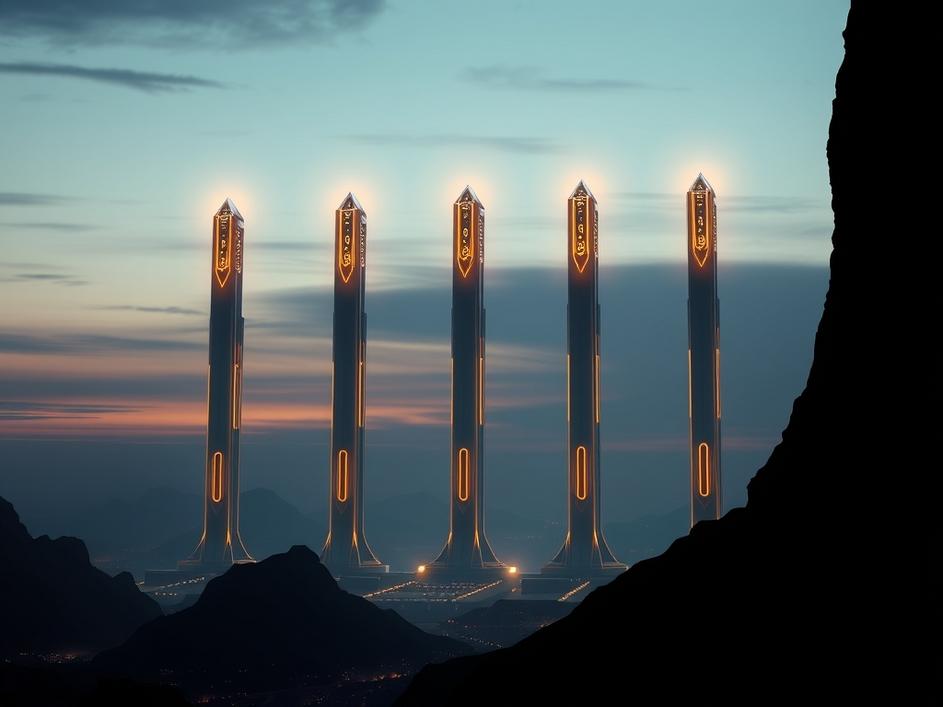


We are a digital agency helping businesses develop immersive, engaging, and user-focused web, app, and software solutions.
2310 Mira Vista Ave
Montrose, CA 91020
2500+ reviews based on client feedback

What's Included?
ToggleRemember when crossing the $100 billion net worth mark felt like landing on the moon? It was a huge deal, a number so big it was hard for most of us to even picture. For years, being a “centibillionaire” put you in an incredibly exclusive club, a symbol of unheard-of financial success. But here we are, watching the financial landscape change faster than ever. It seems that $100 billion isn’t quite the ultimate peak it used to be. We’re now seeing a new level of wealth emerge, one that makes even those mind-boggling fortunes look, well, a little less mind-boggling.
Get ready for a new milestone, because the $200 billion club is now a very real thing, and it has more members than you might expect. It’s no longer just one or two outliers; there are now six people who have soared past this incredible number. We’re talking about names you know very well: Elon Musk, Larry Ellison, Jeff Bezos, Mark Zuckerberg, Larry Page, and Sergey Brin. These aren’t just rich people; they are the architects of much of our digital world, the folks behind companies that touch nearly every aspect of our daily lives. Their fortunes have always been massive, but something big is happening in the global economy to push them to these truly dizzying heights. It’s like watching a financial space race, and these six have just hit warp speed, leaving the rest of the pack further behind than ever.
So, why now? What’s behind this sudden surge to double-century status? A lot of it boils down to the massive wave of artificial intelligence. AI isn’t just a buzzword for tech conferences anymore; it’s a real engine making huge changes across almost every industry. The companies these individuals lead or founded are at the very heart of this AI boom. Think about it: Amazon Web Services (AWS) under Bezos is a foundational piece for countless AI startups and giants alike, providing the cloud infrastructure they need to run their complex models. Meta, led by Zuckerberg, is pouring billions into AI research and integrating it into social media and the metaverse, seeing its value grow as it does so. Google, co-founded by Page and Brin, is an AI powerhouse, with its search engine, self-driving cars, and data centers all benefiting from and advancing AI. Oracle, with Ellison at the helm, is a major player in enterprise software and cloud computing, critical for businesses looking to adopt AI. And then there’s Musk, whose various ventures, from Tesla’s self-driving cars to xAI, are pushing the boundaries of what AI can do. Their businesses are either building the AI tools, using them in big ways, or seeing their valuations climb because everyone else wants a piece of the AI pie. It’s a powerful, self-feeding cycle of innovation, investment, and immense wealth creation.
It’s genuinely hard to wrap your head around a fortune of $200 billion. It’s not just about being able to buy anything you want; it’s about immense power and global influence. These individuals control vast resources, employ millions of people worldwide, and make decisions that can shape entire industries, affect global markets, and even influence political landscapes. When such an incredible amount of wealth and therefore, power, concentrates in so few hands, it naturally raises important questions. What does this mean for economic fairness and opportunity for everyone else? How does it affect the kind of innovations that get funded or the direction society moves in? It’s a stark reflection of our modern economic system, showing how certain sectors can create incredible wealth for a select few, and highlighting the growing gap between the ultra-rich and the average person trying to make ends meet. Their choices, from where they invest to the ethical guidelines (or lack thereof) they set for their AI projects, have ripple effects that touch billions of lives.
So, will this club keep growing? It’s a pretty safe bet that it might. The tech world moves at lightning speed, and AI, for all its current impact, is still in its early stages. As these technologies mature and find even more everyday applications, the companies behind them could grow even more valuable. We might see new contenders emerge, or existing billionaires continue their ascent. But this also makes you wonder about the bigger picture. How sustainable is this kind of rapid wealth accumulation for the global economy? What are the broader societal impacts when the gap between the ultra-rich and everyone else keeps widening year after year? It’s a trend that demands our attention, not just for the sheer size of the numbers involved, but for what it tells us about our economic models, the distribution of power, and the future we’re all building, whether we realize it or not. The trajectory of these fortunes offers a critical lens into the evolving dynamics of wealth, innovation, and global influence.
The arrival of the $200 billion club isn’t just a fascinating headline about money; it’s a strong signal about where the world is heading. It shows us the incredible power of innovation, especially in tech, to create enormous wealth. But it also acts as a stark reminder of the massive concentration of wealth in our society today. It makes us think hard about the responsibilities that come with such power, the challenges of economic inequality, and how the next big tech wave might shape our lives, for better or for worse. It’s a window into the evolving dynamics of prosperity, opportunity, and influence in the 21st century. As these titans continue to accumulate wealth at an unprecedented pace, their decisions will undoubtedly steer much of our collective future. It’s a story that goes far beyond simple net worth calculations; it’s about the very fabric of our interconnected world.



Comments are closed